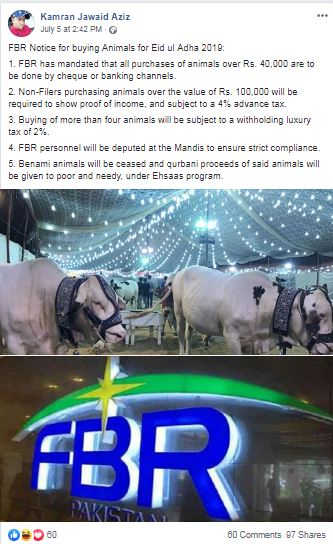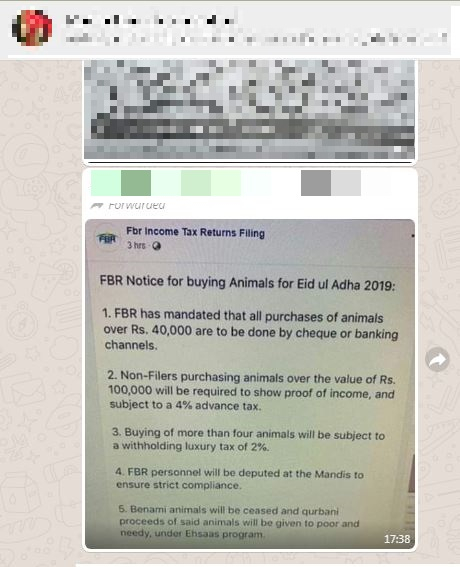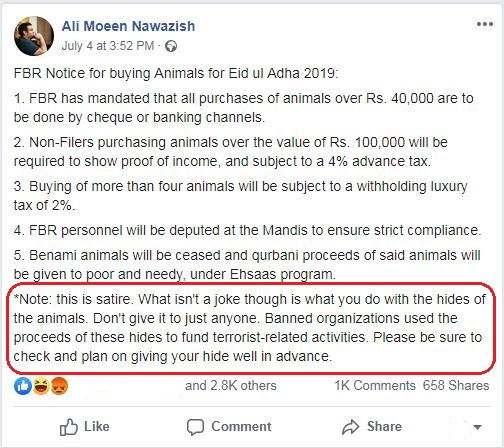Multiple Facebook posts and messages on WhatsApp claim authorities have brought in tough new financial rules for purchasing expensive sacrificial animals for the upcoming Eid-ul-Azha festival.
The claim is false; authorities told AFP on July 11, 2019, that no such restrictions have been imposed; the misleading Facebook posts were almost identical to earlier posts which were clearly marked as satirical.
The false claim was published in this Facebook post on July 5, 2019.
It has been shared more than 90 times.
Below is a screenshot of the misleading Facebook post:

It states: “FBR (Federal Board of Revenue) has mandated that all purchases of animals over Rs. 40,000 (US$ 250) are to be done by cheque or banking channels.”
The post goes on to say that individuals who have not filed income tax returns will also have to provide additional documents and will have to pay a four percent advance tax on the purchase of animals that cost more than 100,000 rupees.
It also claims that those who buy more than four animals will have to pay an additional two percent “withholding luxury tax”.
“FBR personnel will be deputed at the Mandis (animal markets) to ensure strict compliance,” it states and adds: “Benami (undeclared) animals will be ceased and qurbani (sacrifice) proceeds of said animals will be given to poor and needy, under Ehsaas (welfare) program.”
An identical claim was published on Facebook here. A similar claim was published here alongside a video from a traders’ press conference. Another misleading post with a similar claim was published here alongside a photo of two bulls. It has also been shared on Twitter here.
The same misleading message has been shared in Whatsapp groups, for example in the screenshot below:

The claim in the misleading posts is false. FBR’s secretary of public relations Adnan Akram Bajwa told AFP by telephone on July 11, 2019, that no new tax has been imposed on the purchase of sacrificial animals and there are no new rules on how to buy them.
“There is no tax on sacrificial animals and there is no condition about payments via cheques,” Bajwa said.
A search on Facebook found the misleading posts emerged online after similar satirical posts were published here and here.
Below is a screenshot of one of the satirical Facebook posts and with a note which states it is satire highlighted with a red box.


